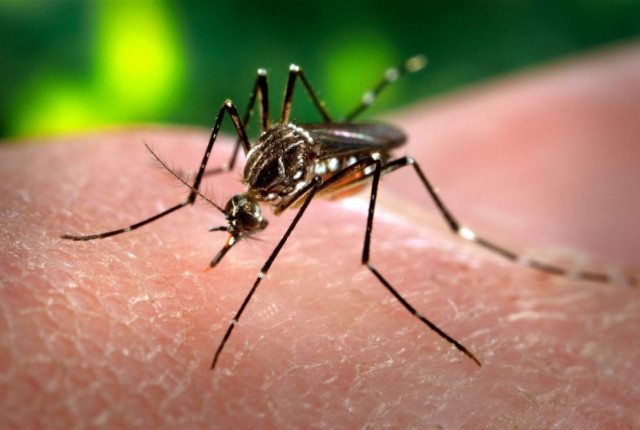Dengue outbreak 2019: what went right?
As the capital tries to catch a maximum of dengue patients and mounts an effective response

PHOTO: REUTERS
Since September 30, the Ministry expanded its surveillance system in Islamabad many folds. That means the total number of cases had increased proportionally. As with a greater number of cases being reported from Islamabad, the media, public and politicians simply assume that Islamabad has a bigger outbreak than others. It is also perceived that Islamabad may not be taking the right measures. An increase in the number of reported cases in our system of governance also means suspensions and other disciplinary actions. That is why from polio to dengue, government officials are reluctant to report the correct number of cases. However trying to catch a maximum of dengue patients helped Islamabad mount an effective response with its limited resources. Response teams were increased ten folds in days and equipped with excellent health intelligence from reliable data, enabling them to identify hot areas and provide a 100% response within 24-48 hours. The Department of Sanitation also came forward and started working with health teams starting the cleanup process.
When in the beginning I was invited to attend daily dengue meetings, myself and other subject experts were very worried about the scale of the outbreak and resources in hand to combat this outbreak. It looked like only a drop in the mercury will help the population of Islamabad. However efforts to reach and report complete number of cases have also helped reverse the trend of outbreak 10 to two weeks earlier than expected. This decreasing trend of new dengue cases has been achieved without any help of low temperatures as we continue to have day temperatures reaching 30 degree Celsius and evening temperatures hovering around 20 degree Celsius. This would not have been possible if the MNSSRC had not stepped up to make it a meaningful collaborative effort among all stakeholders. The health ministry was not afraid of reporting a high number of cases from Islamabad even though he and his senior staff were facing the music from many quarters. Diseases are dynamic and we can’t hide them under the rug — the true picture helps control the situation.
It must be remembered that the dengue outbreak though on a downward trend has not ended yet. We need to make extra efforts to ensure that this trend stays on course. We also need to plan for a long-term dengue control plan which should be adequately funded. I still remember the face of the first patient who died in my care at a hospital emergency many years ago. Our inaction and wrong prioritisation of resources in health puts thousands at risk of disease and death. But we don’t see their faces. They are the silent victims of our inefficiencies. As public health officials, our prime responsibility is to the population we serve no matter what critique we receive.
Published in The Express Tribune, October 12th, 2019.
Like Opinion & Editorial on Facebook, follow @ETOpEd on Twitter to receive all updates on all our daily pieces.















COMMENTS
Comments are moderated and generally will be posted if they are on-topic and not abusive.
For more information, please see our Comments FAQ